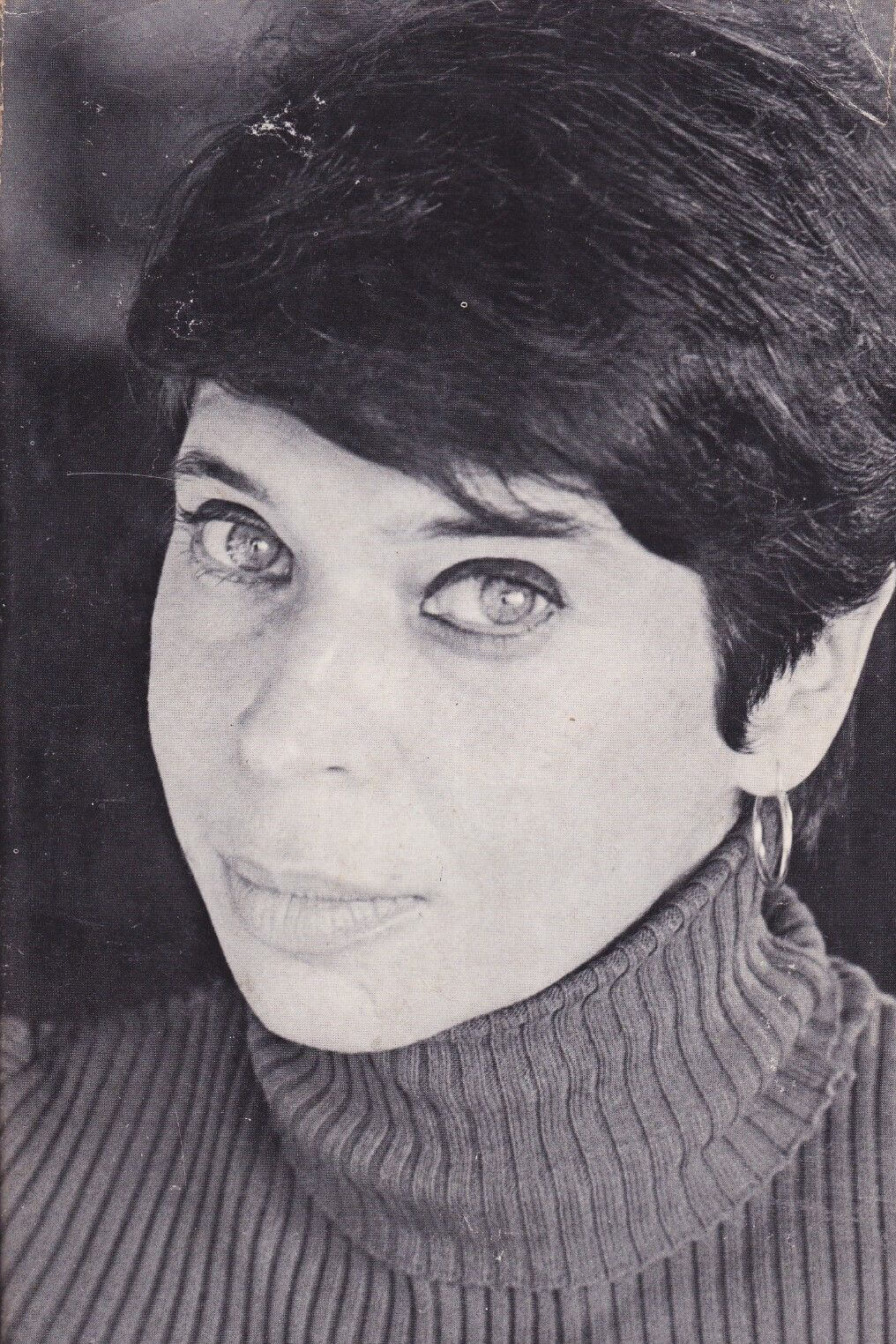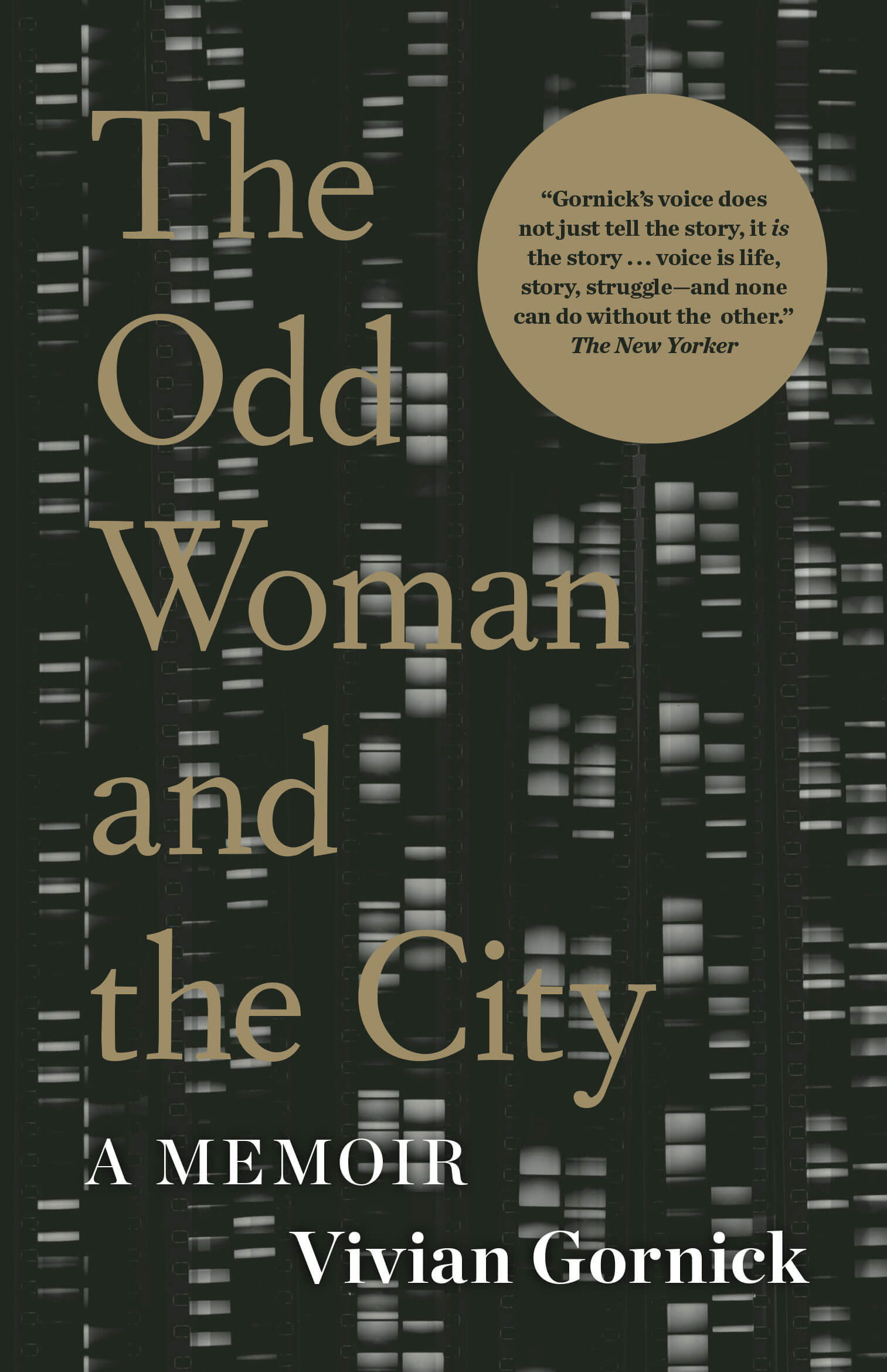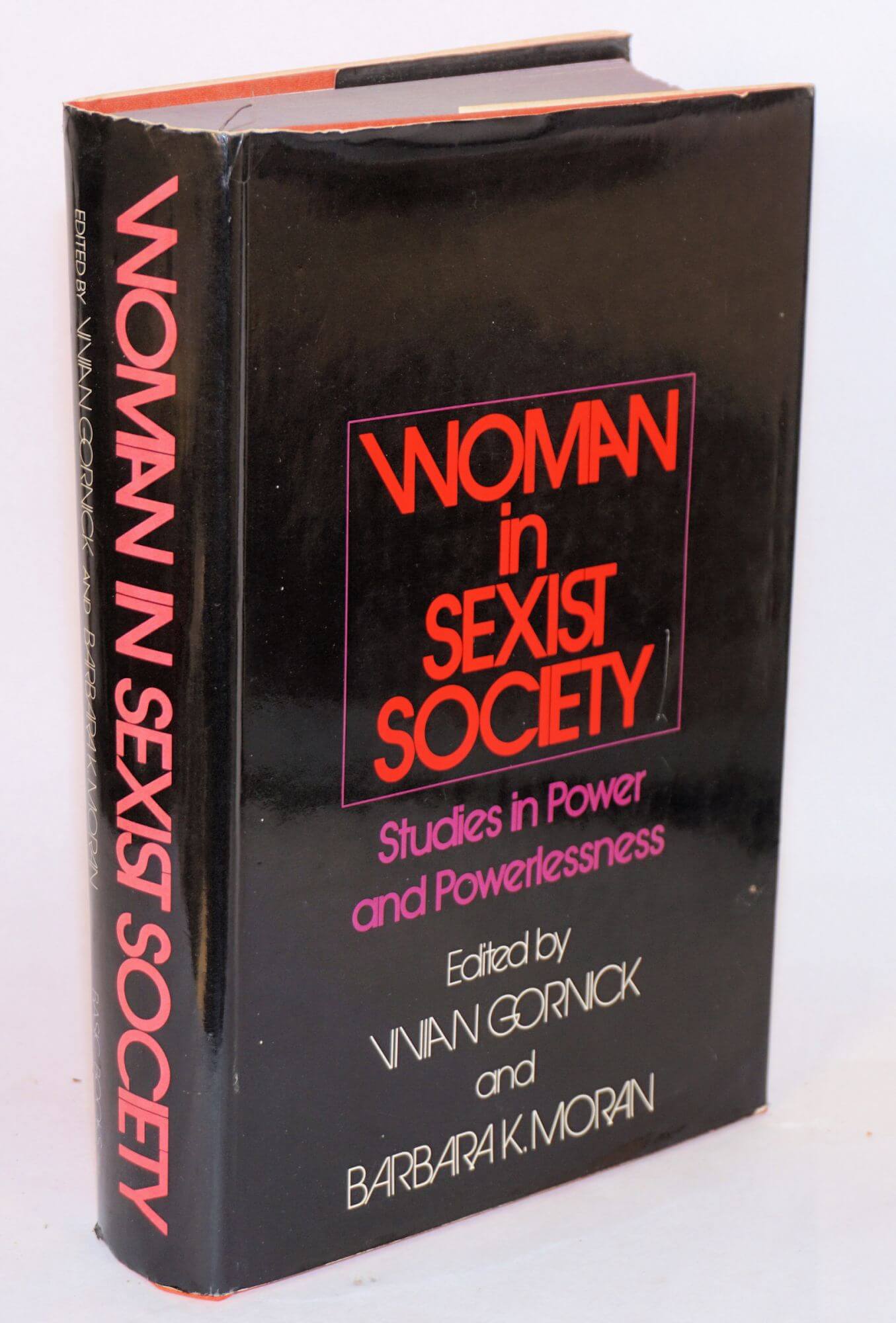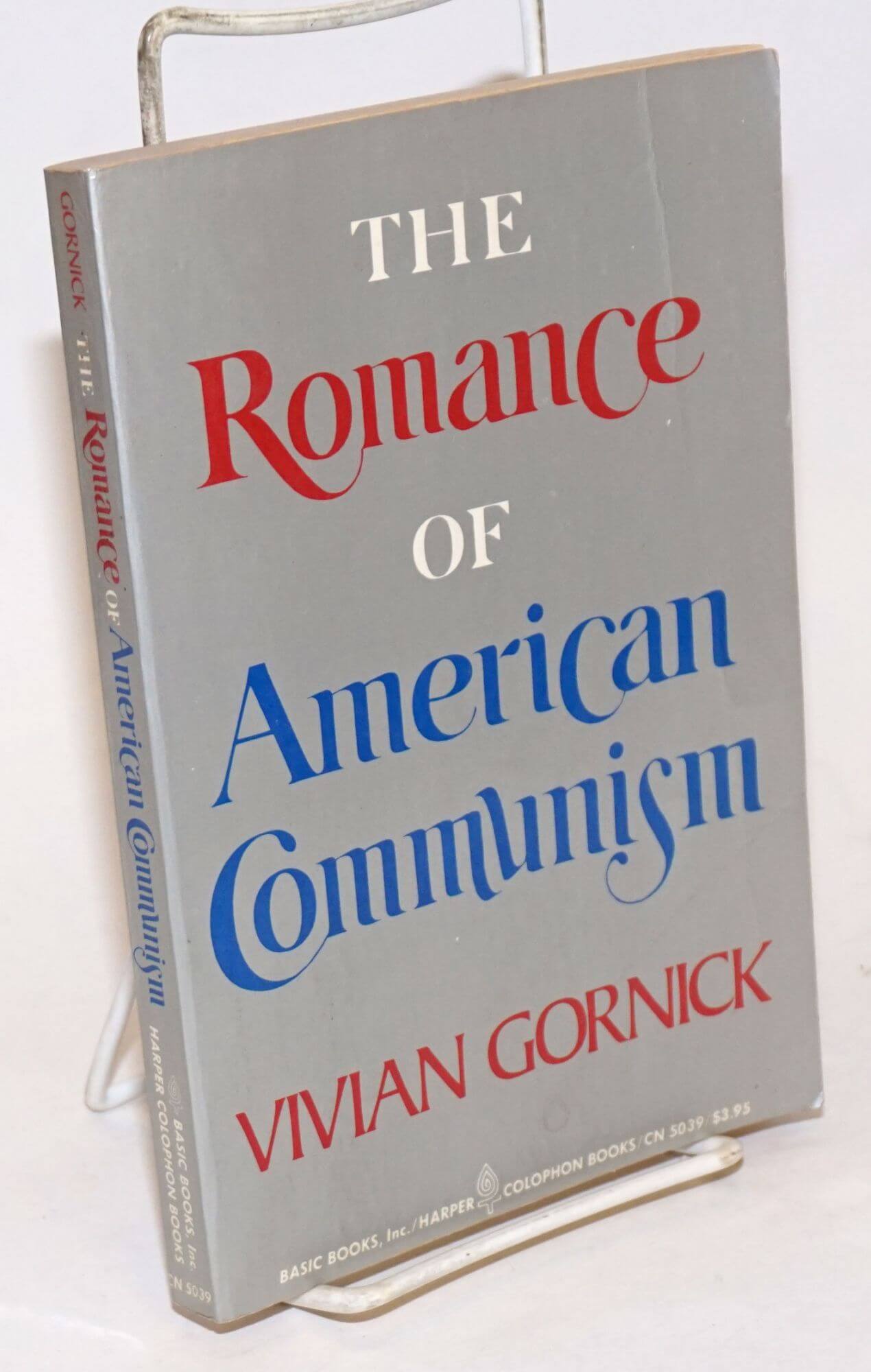At Home With Vivian Gornick
Thora Siemsen
March 26, 2019

Vivian Gornick has a bent against acquisition. The writer wants for little, she says. “I turned out to be someone without a bourgeois bone in my body. I was very lucky because I knew I was going to live a financially marginal life as a writer.” Her West Village apartment—where she’s lived for the last thirty-five years—could be described as ruthlessly serene: cat-scratched chairs to read in, a couch for friends to sit on, triptych paintings on opposite walls made by her best friend (the man she calls Leonard in her latest memoir, The Odd Woman and the City). He helped her make a decision about the Home Depot rug in the living room, her Jensen-Lewis chair. How she furnishes is analogous to how she works: “Just like I need a good editor, I very often need people to tell me, You can buy that.”
It’s been fifty years since Gornick first took up her post at The Village Voice, where she became a polemicist for the radical feminist movement. Gornick describes most of her years as a freelance writer as “a miracle, really.” She says that writing her 1973 debut non-fiction book, In Search of Ali Mahmoud, served as the backbone for her work as a “personal journalist.” The book, for which she went to Egypt to make a study of middle class Cairenes, was a Finalist for the 1974 National Book Awards for Contemporary Affairs. Her following book, The Romance of American Communism (1977), was written in part to demystify the lives of people with whom she’d grown up. As years went on, Gornick’s writing became more personal still. Her memoir about her mother, Fierce Attachments (1987), cemented her status as a great American memoirist, the mode she became most famous for. She is now the definitive memoirist of the city block.
These days, Gornick’s narrative divining rod no longer points back towards her youth in the tenements of the Bronx, where she was born in June of 1935. Her perch is one of a renegade New York feminist, a stylist, a critic forever turning over old sentences, re-examining her relationships to institutions, loitering with the literature that she loves. She’s interested in the discomforts ensconced in ritual. Gornick smokes three cigarettes a day and I can tell, not unpleasantly, that this is an indoor habit. Another indoor habit: Gornick, famous walker of New York, is clocking most of her mileage lately on her gym’s track. Before we call it quits so she can take a call—I suspect it’s Leonard—Gornick wishes me difficulty in editing our conversation, below. - TS
A friend once told me that this line from Approaching Eye Level changed her life: “I had always known that life was not appetite and acquisition. In my earnest, angry, good-girl way I pursued ‘meaning.’” When did these drives in you begin to feel like they made up an integrated self?
Never. Pursuit is everything. The struggle is everything. The achievement is hardly ever satisfying. At this age, I do go back and forth. There are times when I'm at peace with myself and I feel I’ve lived this life that was allotted me as good as I could, but there are many other times when I don't feel that.
You wrote about your neighborhood in The Odd Woman and the City: “When the influence of European modernism crossed the Atlantic at the turn of the twentieth century, it made its first full stop in Greenwich Village.” What were your impressions of the Village before you moved here?
We all knew about the Village as kids. I was a student at City College the first time I came down here. I must have been 17 or 18, with my friend. I was never an adventurous person physically. I’ve never been and I'm not to this day. But I'll go anywhere that anybody will take me. I don’t know how to initiate adventure, but I had a friend, she's still my friend, and she was incredibly adventurous. I just followed her everywhere.

I’m old now, that’s sixty years ago. The Village was still very much filled with bohemian life. You could feel it. You knew that writers and artists were attracted to this neighborhood and they gave it its personality. There used to be a place down the street here in Sheridan Square called the Limelight. And the Limelight, in my years, was the most bohemian place to go. (Laughs.) We used to go there and pick up men who frightened me, but not Claire. She was very bold. I was always pulling back. I didn’t know how to drink, I didn’t know how to flirt. But I was excited by the atmosphere, and we were both determined that we would live here someday. And we did.
I lived on Charles Street in a tiny apartment for a long time, and Claire lived on Hudson Street, as did other friends of ours. This was common for a number of generations, and I don't think ours was the last one by any means. But it was certainly one of the last. I don’t know when the Village started to change, but bohemia dried up.
When I started writing in the late 1970s, it was already beginning to disappear. It was the druggie generation and there were still plenty of people who acted as though they had artistic intent, but were just into drugs and being transgressive. That took over. Transgression for its own sake, that wasn’t the way it was when I was a kid. People really weren’t necessarily what they said they were. They said they were musicians or painters or writers, just to say it. It gave a personality to the way people were living.
When I got here, and went to work at The Village Voice, I became a polemicist for radical feminism. The divisions then were really big between those of us who were political people at The Village Voice. They weren’t into the arts and they weren’t artists, they were politico. We were muckrakers. I found myself on this side of the bed. Since the other side had to do a lot with drinking and taking drugs, I was out of it. I was so straight.
You’ve talked about working on your Voice stories at a slower clip. What were some reasons for the pace you were keeping?
Writing has come hard to me. When I started to write professionally, I scared myself even more. I took forever to write everything because I had no faith in myself, I was full of self-doubt. I couldn’t believe anybody wanted anything I wrote and that’s the way it was for many years. In my own eyes, I’m an underachiever. There’s much I could have written that I haven’t written, because everything took so long. It took so long because I was always not sure what I was doing.
Everybody wrote a lot faster than I did and got things out and what they wrote was just as good. But the Voice was very intelligent. It was a place where the only editorial decision they made was to take you on as a writer. Once you were taken on as a writer, you could write anything you wanted and at any pace you wanted.
How did you get around distractions or procrastinations in those days?
I didn’t get around them. The only thing I can say for myself is that I wanted to write so badly that I just bulled my way through a lot of very neurotic behavior. I didn’t cope with anything. In other words, I’d spend the whole day in a depression. It’s still true, I write for fifteen minutes and then I’m like a bag lady all day long. Once there’s a draft on the page, then I’m home free. Then I can sit for hours and rewrite. But getting that famous first draft down was hell for me.

Which books are you reading, or rereading, this winter?
Actually, I just finished writing a book about rereading, in which I reread many of the books that I loved as a young woman. It’s that hybrid genre—part memoir, part literary criticism. I reread D.H. Lawrence, I reread Colette, I reread Marguerite Duras, Natalia Ginzburg, Delmore Schwartz, Thomas Hardy. What am I rereading right now? Well, I’ve got, like everybody else, six books on the shelf above my bed. Right now, I happen to be rereading a novel that has always attracted me and I never really knew why, but it does. It’s called The Transit Of Venus. You know that book?
Yeah, Shirley Hazzard. I recently read The Bay of Noon.
Oh really? You know I never read her, but I did read The Transit Of Venus. It came out in 1980, and I don’t know what on earth I made of it in 1980, but now I’m rereading it and I find it mysteriously attractive. It lures me.
I'm also reading Marguerite Duras’s Wartime Writings. The Balkan Trilogy and The Levant Trilogy, written by Olivia Manning in the sixties. She was the wife of an English teacher who worked for the English Counsel, which sent these English teachers to go abroad and write. This was 1938. She was 22 years old, she married this guy in two seconds in London, and he took her back to Bucharest right into the second World War. She and he together were one step ahead of the Nazis for a very long time. First in Bucharest, then in Athens, then in Cairo, and then in Palestine. And she was this little housewife. Nobody paid any real attention to her and there she was, observing them all at every second.
When you began covering radical feminism for the Voice, you fell in with the movement and discovered your own feminist stances. How did you grapple with sufficient detachment while covering these stories?
That is the practice I learned to develop, the practice of becoming a writer. I slowly taught myself to find the right distance. Not too far away, not too close. That’s a lifetime of writing. From the very beginning, I saw myself as a personal journalist. That means that I am the narrator, that I am the instrument of illumination. So I would write, The other night, at a dinner party, blah blah blah happened. I would describe what happened, and then I’d make sense of it. I would write a commentary and the analysis that justified my having described the evening and put myself in. The task for me was to decide on the proportions, the degree to which I was in the story. Most personal journalists failed at this because they started writing about themselves, confessionally or therapeutically. That was the fashion of the time, and still is. They didn’t realize that the game was that you use yourself just enough to tell the story.
How did your 1973 debut, In Search of Ali Mahmoud, help clarify which type of writing most suited you?
That book was my apprentice work as what I’m calling a personal journalist. It has a lot of faults. It’s not a book I enjoy going back to. The Egyptians themselves sort of took the book away from me, and they’re wonderfully on the page when they are on the page. My own writing was really veering towards way too much about myself, and I was filled with sentimental rhetoric, which I didn’t recognize as such for a very long time. I was nearly fifty when I realized that this had to change. I couldn’t even recognize it. Naturally, if you recognize it, you stop. But it took me years to see how I had rhetorical tics, how I was gushing all over it, everything was so moving. Silly. It took me a very long time to start teaching myself how to really write. I’m a late bloomer.

Was your following book, 1977’s The Romance of American Communism, in part a tribute to your mother, since her involvement with the Communist party had faltered?
Yes. Actually, it’s odd we should be talking about that book now because I just spent the morning trying to finish an introduction [for it]. It turns out that Verso wants to republish this book. I reread it and was appalled by all the bad writing in it. But I was gratified by all the great stories that the communists told. It reminded me of how and why I wrote that book. It was partly to gratify, not to justify my mother’s life in particular, but the lives of all those men and women among whom I’d grown up. [They] were progressives who ranged from sympathizers to actually being in the communist party. I always saw them as honest dissenters. I never saw them as bomb throwers or revolutionaries. They didn’t want to overthrow the American government by violence or anything.
Then when I was about 24 years old, I went west to Berkeley. I started a higher degree in literature. There I met many Americans who came from Nebraska or Idaho, all kinds of places that were foreign to me, and most have them had never seen a communist in their lives. They couldn’t believe that ordinary Americans had become communists. That shocked me terribly.
It came into my head to write a history to show what it had meant. Certainly my parents’ lives were a part of what I wanted to put normal flesh on. It was like a skeleton that was demonized by the whole world. In Europe, millions of people just ordinarily say, “My uncles were communists. My parents were.” Even if they are now, they were never demonized the way we did here. The incredible naiveté of Americans. I wanted to show the relation between the individual and ideology and how trapped in that relationship is a hunger for a larger life. It was in that spirit that I wrote it.
In The End of the Novel of Love you write, “We in the Bronx knew that love was the supreme accomplishment.” You went along with this?
Until I became a feminist. When I was 35 and on the verge of my second divorce. I suddenly realized, which thousands of us did at the same moment, that what we were calling love was really sexual attraction and that those two had been confused for millennia. And that we mostly married on the basis of these attractions and then found ourselves living with people with whom we were not compatible, and that you were relentlessly drawn into the precepts of marriage. It took a very long time to understand the difference between sexual infatuation and love.
We all called it love, a great passion, which was based on all those books. We never seemed to register that they all ended disastrously. You know, that every one of these women died or was killed, everything ended in chaos and misery. All the great novels, Madame Bovary, Anna Karenina. Writers like Colette assured us that it didn't matter if your life went up in flames, what mattered was to experience the great passion. I grew up with that, definitely.
.jpg)
Did dating men you knew from childhood as an adult make you feel, at first, connected to these old beliefs?
When you dated men you’d grown up with, which I did, it was a fantasy. I was forever an 18-year-old virgin in their eyes. And we all went to bed with these fantasies, and then woke up with the reality. Every single case was one of fantasy. The bubble had to burst, and always in a really bad way. We never forgave each other, any of us. Which is what happens to most marriages where people marry very young. The more they grow up, they don’t forgive each other for growing up together in each other’s sight. They grow up into different people than the ones that they fell in love with.
In Fierce Attachments, you wrote that your mother “knew how to convert gossip into knowledge.” What value do you find in gossip?
It’s a lot of fun. I gossip like everybody else. If somebody says to me, “Please do not repeat this,” I will never repeat it. If gossip gets dangerous or cruel, that’s out. Somebody famous has said many, many years ago, “With others it’s gossip, with me it’s social history.” I sort of feel like that, too. Sometimes of course, gossip is like ordinary conversation, and you come away having learned something that you can make use of. Not necessarily about the person, but in the course of a conversation, there might be an insight. The thing I dislike in most people who gossip is that they really gossip a lot, and it’s tedious.
In The Situation and The Story you wrote, “As a rule, I don’t read nature writing, because I hardly ever get it.” What other rules do you have about what you don’t read?
When I say I never read nature writing, there are all kinds of things I never read. I read about them and then I dismiss them. There are people who are omnivorous readers, and I am not. Then I think of all the people for whom my work is not a lure, is not attractive. And the fact is, connecting with a book is like connecting with another person. There are all kinds of people you wouldn’t give a thought to. You don’t give them a second, you don’t ever get to know them. You look at them on the subway and they are foreign categories. Some, circumstantially, you might find yourself involved with. And then, a human being emerges and you get connected. That’s a great surprise and that’s a pleasure. But reading is just like that. You walk into a room full of people, they're all strangers, one or another looks attractive to you.
You’ve spoken about which subjects aren’t yours in writing, including sex and death. How did you come by that certitude?
Sex was never an organizing principle for me. I slept with a fair number of men, I was married twice, but I never felt that my life was on the line. Most of the time, sex was blissing out. I had quite a number of affairs that were based on blissing out, on chemistry, on that hunger. When I was in consciousness raising groups, there were always women who couldn't achieve orgasm, and I never understood that. I came like a firecracker. (Laughs.)
Death… I’ve never thought about death in my entire life. Never. Even to this day, and I’m really old now. I’m aware of my age every now and then, more than I ever was before, but I pretty much live inside my skin as I always did. Sometimes I fear that my mind is not as fertile as it was, and then I forget about it. The people I know who talk about death are very banal and bore me to death.